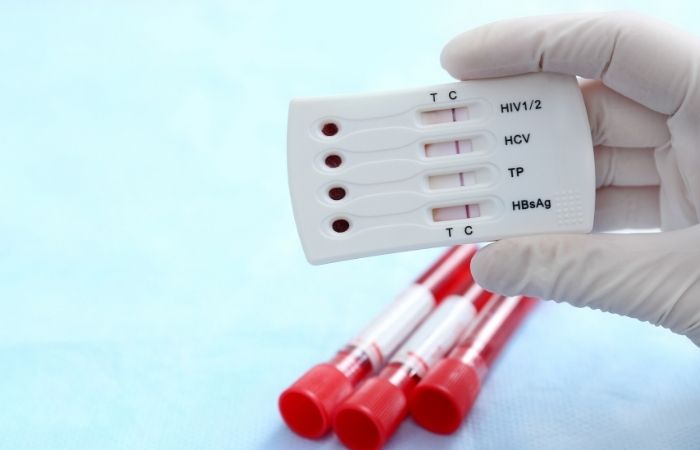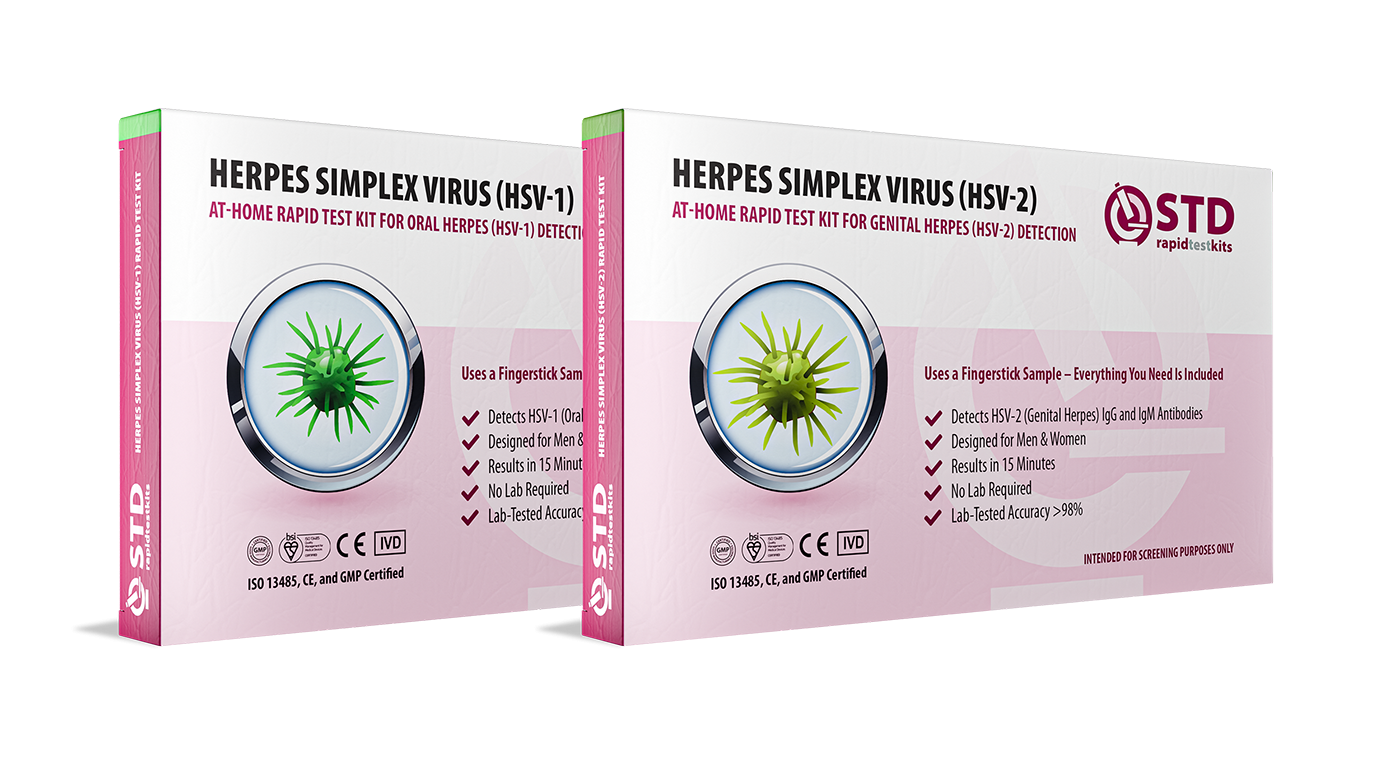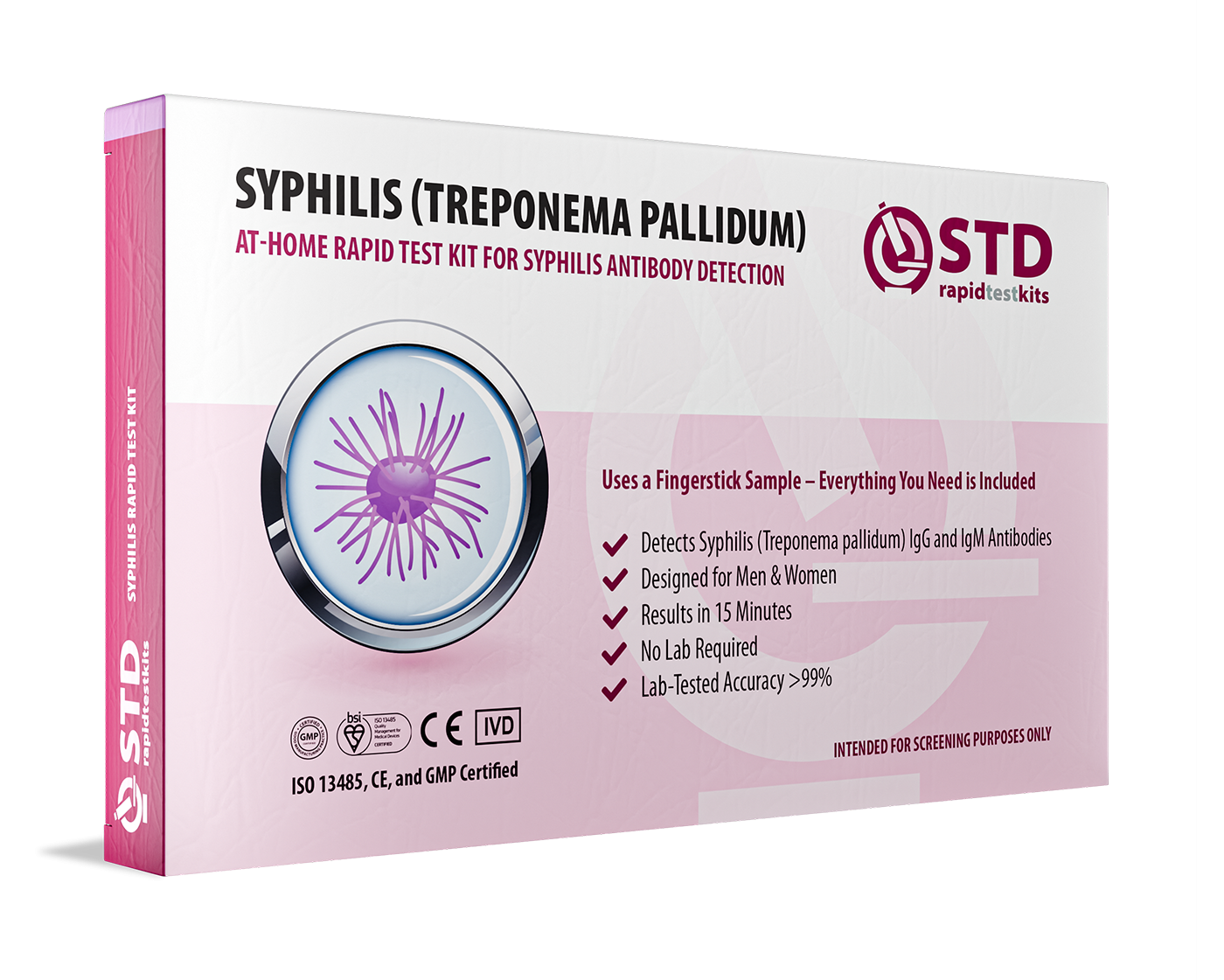Quick Answer: Testing before sex is one of the most effective ways to reduce STD transmission, protect your health, and build trust with partners. Normalizing this practice helps catch asymptomatic infections, encourages open communication, and empowers everyone to take ownership of their sexual well-being, no shame, just smarter sex.
Why the Current “Wait Until Symptoms” Model Fails
Let’s be honest, most people only test for STDs when something goes wrong. A burning sensation, an unfamiliar bump, a phone call from a worried ex. This reactionary approach is dangerous, and it’s outdated. The majority of STDs are asymptomatic, meaning you can have chlamydia, gonorrhea, herpes, syphilis, or even HIV and feel completely fine.
Here’s the problem: if you’re only testing after symptoms, you’re already behind. You might have unknowingly passed an infection to someone else, or given it time to worsen in your own body. Regular testing, especially before new sexual encounters, is essential to catching infections early and preventing spread.
We don’t wait for toothaches to start brushing. We don’t wait for a car crash to put on a seatbelt. So why are we still waiting for symptoms to take our sexual health seriously?

People are also reading: At-Home HIV Testing: What Happens After a Positive Result?
Asymptomatic STDs: The Invisible Threat
It’s one of the cruelest tricks of sexual health, many of the most common infections show no immediate signs. Chlamydia affects over 1.6 million Americans annually, and most don’t even know they have it. Gonorrhea can live quietly in the throat or rectum. HPV often goes unnoticed until it causes complications like genital warts or, worse, cervical cancer. Even HIV can live in your body for weeks or months without obvious symptoms.
If your body isn’t sounding the alarm, that doesn’t mean there’s no danger. Testing is the only way to know for sure. And knowing for sure means you can treat early, avoid complications, and protect the people you care about.
Getting tested before sex isn’t just about protecting yourself, it’s a way of showing respect. It says: I care about your health too. That’s not fear-based, that’s love-based.
Destigmatizing Testing: How We Shift the Conversation
Part of why pre-sex testing isn’t the norm yet? Shame. People associate STD testing with guilt, regret, or promiscuity. That stigma keeps conversations in the dark and puts everyone at greater risk. But the truth is, testing is a form of self-care, no different from going to the gym or getting therapy.
We need to start treating STD testing like a regular part of adult life. That starts with how we talk about it:
- Instead of “Have you been tested?” try “When’s the last time you tested?”
- Instead of “Are you clean?” say “What’s your current status?”
- Instead of silence, normalize asking and sharing openly
Apps like Grindr, HER, and Tinder are now offering features to display testing status. Clinics are offering text reminders, online scheduling, and free home test kits. The more we integrate testing into everyday sexual culture, the less awkward and more empowering it becomes.
When Should You Get Tested Before Sex?
If you’re about to hook up with someone new, start dating, or open your relationship, it’s time to test. Ideally, you should test for STDs anytime there’s a new partner, a change in protection habits, or a gap in routine care.
Recommended timeline before sex:
- 1–2 weeks before the encounter, so results are current
- Test for common STDs: chlamydia, gonorrhea, syphilis, herpes, HIV, and HPV (depending on age and gender)
- Use at-home tests for privacy or convenience, or visit a local clinic
Don’t be afraid to delay sex until both of you have results. Desire doesn’t disappear, but infections don’t either. Giving yourself time to test shows maturity, intention, and a different kind of sex appeal: safety with swagger.
Check Your STD Status in Minutes
Test at Home with RemediumGenital & Oral Herpes Test Kit

 For Men & Women
For Men & Women Results in Minutes
Results in Minutes No Lab Needed
No Lab Needed Private & Discreet
Private & DiscreetOrder Now $75.00 $98.00
For all 2 tests
How to Talk to a Partner About Testing, Without Killing the Mood
Bringing up STD testing doesn’t have to feel like dropping a bomb. In fact, the way you talk about testing can increase trust and sexual chemistry. Confidence and care go hand in hand.
Try saying:
- “Before we go any further, I’d feel better if we both tested. I like you, and I want us to be safe.”
- “Let’s do something hot and smart, get tested together before we hook up.”
- “I test regularly and want to make sure we’re both good. What’s your usual routine?”
Most people appreciate honesty. And if they don’t? That says more about their risk mindset than yours. Testing isn’t a buzzkill, it’s a green flag.
Think of it like talking about protection. We don’t say, “Let’s not ruin the mood with condoms.” So why let silence around testing put anyone at risk?
What Happens If Someone Says No to Testing?
This is a reality many people fear: “What if I ask, and they shut it down?” Some people will resist testing. They’ll say they feel fine, they were tested “a while ago,” or that it’s not necessary if you’re using protection. But here’s the thing, your health isn’t negotiable.
If someone refuses to test or gets defensive, that’s a red flag. You’re not accusing them. You’re setting a standard. If they won’t meet you in that standard, you get to say no to sex.
Remember:
- You don’t owe anyone access to your body without informed consent
- Testing is not a “trust issue,” it’s a health habit
- Good partners won’t take offense, they’ll step up
Saying no to untested sex is an act of self-respect. And if someone can’t handle that, they’re not ready for you.
Home Testing Kits: A Game-Changer for Pre-Sex Safety
One of the biggest advances in sexual health is the rise of accurate, discreet at-home STD testing kits. No appointments, no awkward waiting rooms, just reliable results delivered right to your phone or inbox.
STD Rapid Test Kits offers:
- Comprehensive combo kits for HIV, herpes, chlamydia, syphilis, and more
- Discreet packaging with no clinic visit required
- Lab-level accuracy and fast turnarounds
You can test alone, with a partner, or even bring a kit on a trip. Normalizing home testing makes conversations easier and decisions smarter. It puts power back in your hands, literally.

People are also reading: How Hepatitis B Can Spread Without Sex
Protection and Testing Go Hand in Hand
Condoms and dental dams are fantastic, but they’re not perfect. HPV, herpes, and syphilis can spread through skin-to-skin contact even when barriers are used. Oral sex? Still risky. Toys? They need cleaning or condoms too.
That’s why testing isn’t a replacement for condoms, it’s a companion. Think of it like this:
- Protection reduces the chance of exposure
- Testing catches anything that might still get through
- Together, they give you real peace of mind
Testing completes the safety puzzle. If you’re using protection but not testing, you’re only doing half the job. And your body deserves full care.
Making Testing Sexy: Turning Health Into Foreplay
Let’s flip the script: testing doesn’t have to be clinical or boring. It can actually become part of the turn-on. How? By building anticipation, showing maturity, and creating a sense of shared vulnerability. Trust is a huge turn-on, and few things build trust like being honest about your status.
Try this:
- Make testing a pre-date plan: “Let’s both test and meet up with clean slates.”
- Send your results in a flirty message: “Just tested. Ready when you are.”
- Test together before the first hookup, celebrate with takeout or a movie after
Testing signals that you value yourself and your partner. That’s magnetic. And when both of you are confident in your health, you’re free to explore with fewer worries and more fun.
How to Make Testing a Habit, Not a Hassle
Testing once isn’t enough, especially if you have multiple partners, are dating, or are part of a queer or non-monogamous community. Think of testing like a tune-up, regular, responsible, and protective.
Here’s a basic routine:
- Every 3–6 months if you’re sexually active with multiple partners
- Before each new sexual partner or if switching from condoms to no condoms
- After any possible exposure (like a broken condom or missed protection)
Use calendar reminders. Find a clinic you like. Order a kit from STD Rapid Test Kits. The easier you make testing, the more likely you’ll stick to it.
Check Your STD Status in Minutes
Test at Home with RemediumSyphilis Test Kit

 For Men & Women
For Men & Women Results in Minutes
Results in Minutes No Lab Needed
No Lab Needed Private & Discreet
Private & DiscreetOrder Now $33.99 $49.00
Who Should Be Testing Before Sex? (Spoiler: Everyone)
Testing before sex isn’t just for high-risk groups, queer folks, or “promiscuous” people. It’s for anyone who values their body and their partners. If you have sex, you should test. That includes:
- Monogamous couples starting out (test before going barrier-free)
- Teens and college students exploring hookups and new relationships
- Married people reentering dating after divorce
- People on dating apps or in poly relationships
Testing isn’t about labels, it’s about behaviors. One encounter is enough to contract or pass an STD. Everyone deserves knowledge and safety, not just those society deems “at risk.”
Teaching the Next Generation: Testing as Sexual Literacy
Imagine if every high school sex ed class included how to ask a partner about testing. Or if college welcome packets included free test kits. Making testing normal starts young, and it’s time we raise a generation that sees sexual health as essential, not shameful.
Here’s what we should be teaching:
- How to access free or low-cost testing
- How to talk to partners without judgment or awkwardness
- How to interpret test results and follow up
Whether you’re a parent, teacher, coach, or just someone who cares, you can help change the script. Testing should be as familiar as talking about birth control or periods. Let’s give young people tools, not taboos.
FAQs
1. Should I really test before every new partner?
Yes. Even if someone “looks healthy,” they could have an STD. Most infections are symptomless, so testing is your only reliable checkpoint.
2. How soon after sex should I get tested?
Wait 1–2 weeks for most STDs, 4–6 weeks for HIV for most accurate results. But you can test earlier and retest if you’re concerned.
3. Does testing before sex mean you don’t trust your partner?
Not at all. It means you care about each other’s health. Testing is about responsibility, not suspicion.
4. Can home STD kits be trusted?
Yes. Lab-validated kits like those from STD Rapid Test Kits offer accurate, private testing with fast results.
5. What if my partner refuses to get tested?
You’re allowed to say no to sex without testing. Your safety matters, and any partner who respects you will understand that.
6. Do condoms replace the need for testing?
No. Condoms lower risk but don’t eliminate it. Skin-to-skin STDs like herpes and HPV can still spread. Testing fills that gap.
7. How often should I test if I’m in a monogamous relationship?
Test before going exclusive, then annually or if there’s a lapse in monogamy or symptoms arise.
8. Is testing expensive?
Many clinics offer free or low-cost testing. At-home kits range from $30–$150 depending on the number of tests included.
9. Does oral sex require STD testing?
Yes. Oral sex can transmit herpes, gonorrhea, syphilis, and HPV. Throat swabs may be recommended in some cases.
10. Where can I find testing if I don’t have insurance?
Look for Title X clinics, Planned Parenthood, LGBTQ+ centers, or order a discreet kit from STD Rapid Test Kits without needing insurance.
Conclusion: Testing First Isn’t Weird, It’s Sexy, Smart, and Necessary
You deserve sex that’s not only hot but healthy. Testing before sex is a game-changing move, it protects your health, your partners, and your peace of mind. It’s not a barrier to intimacy, it’s a bridge to better connection, stronger trust, and more enjoyable encounters.
Normalize the conversation. Own your safety. Choose partners who value both. This isn’t about fear, it’s about freedom.
STD Rapid Test Kits makes pre-sex testing easy, fast, and confidential. Whether you’re seeing someone new or just want to check in with your own health, testing is the first step toward sex that’s safe, informed, and empowering.
Sources
1. CDC – STD Screening Recommendations
2. HIV.gov – Why Testing Matters
3. Planned Parenthood – Get Tested










